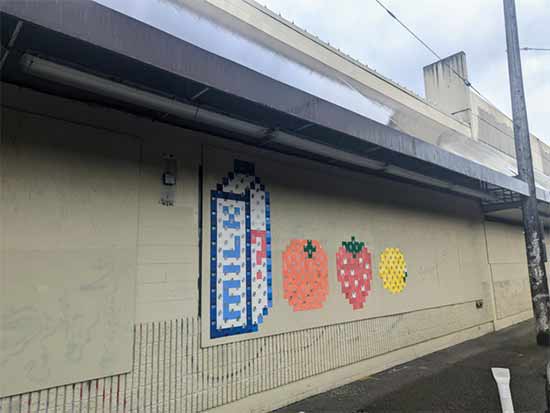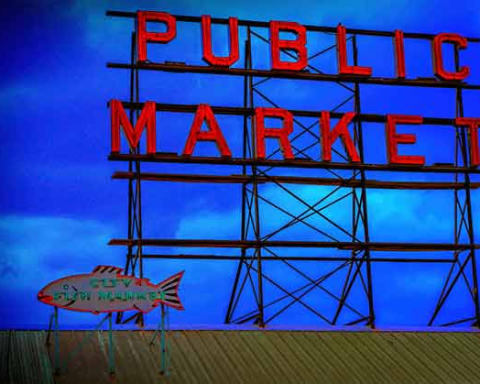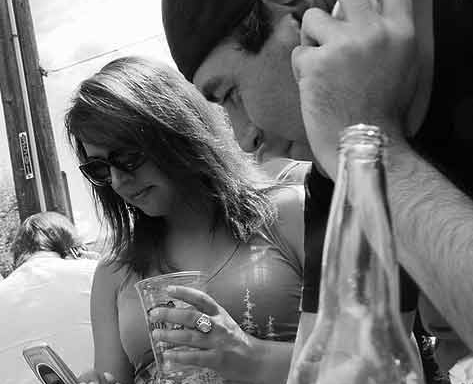The only groceries at the former 15th Ave QFC are the 8-bit milk, orange, strawberry and lemon made of floppy disks.
By Connor Nash
In January 2021, the Seattle City Council passed an ordinance requiring grocery stores with employees of 500 or more to pay each employee an additional $4 an hour hazard pay. Organizations representing grocery stores, including the Northwest Grocery Association and the Washington Food Industry Association, were against the ordinance and sued to have it repealed. The lawsuits went nowhere.
Two weeks after the hazard pay ordinance, Kroger announced that it would be closing the QFC located on 15th Ave E in Capitol Hill and the 35th Ave location in Wedgewood. QFC is a subsidiary of Kroger.
Kroger explained in their statement at the time that, “When you factor in the increased costs of operating during COVID-19, coupled with consistent financial losses at these two locations, and this new extra pay mandate, it becomes impossible to operate a financially sustainable business.”
On April 24th, 2021 the 15th Ave QFC doors closed.
The landlord of the building, Hunters Capital, was hopeful at the time about the building, but stressed nothing may happen to the building in the future.
“While redevelopment of this building is possible, current leases in place make it unlikely to happen in the near future. However, we do hope to create a more engaging street front for our tenants and neighbors,” said Jill Cronauer COO of Hunter Capital.
In September 2022, Hazard pay for grocery workers was ended by the city council, meaning that stores like QFC would not have to pay workers more. This would be good news for Kroger since increased costs were the reason for the closures. But Kroger continued to voice their opposition.
Currently, the former QFC on 15th is still boarded up, graffiti painted over multiple times, grocery floppy disk art, and construction equipment in the parking lot for a new residential building down the block.
But there are zero signs that anything will happen at the former QFC.
That’s because Kroger continues to be a “good tenant” and pays their rent to Hunter Capital, in full and in a timely manner. Kroger is contributing to blight in the neighborhood and constricting economic activity in a neighborhood still recovering from the pandemic, but since they pay their rent, they get to stay.
This continued closure seems odd because the reason for closing the QFC was the increased cost caused by the hazard pay, yet Kroger chooses to take a complete loss on a property that is doing zero economic activity.
Kroger can afford to be this wasteful, it reported an Operating Profit of $4.1 billion for fiscal year 2022. Sales without fuel increased by 5.6% in that same time period.
A possible reason for the QFC staying dormant is due to the future closure and redevelopment of the nearby Safeway. QFC may be waiting for the Safeway to close before opening back up, to monopolize the neighborhood’s grocery needs.
Some business owners in the area are not happy about Kroger’s decision to keep the property abandoned for no one to use. One stated, “I think anyone holding a property vacant is not a good neighbor.”
Kroger continued to protest over the ended hazard pay ordinance. It affects the small businesses that are forced to deal with less foot traffic and consumers coming to the area. And it affects consumers who have fewer options in what billion-dollar corporation to get their groceries at.
Kroger did not respond for comment.






